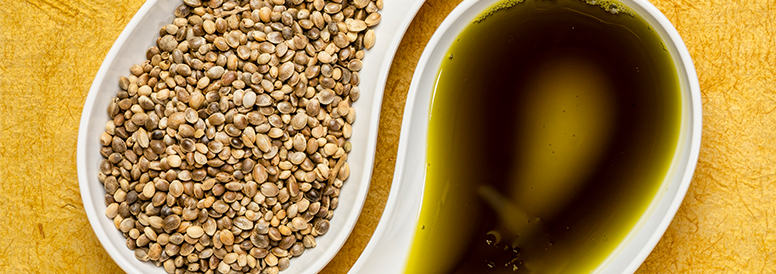Regulatory Update on CBD
A regulatory update from the Emerson Ecologics Medical Education and Quality teams
Here at Emerson Ecologics, we get questions from practitioners almost daily about whether or not cannabidiol (CBD) is legal or regulated. There is also much confusion surrounding the difference between CBD extracts and hemp extract. For better or worse, over the last several years there has been an explosion of interest in these topics.
To be clear, hemp extract is not the same as CBD extract. Hemp extract can be legally distributed in food and supplements (with some state restrictions), whereas CBD extract cannot. The primary point of confusion seems to be the 2018 Farm Bill. To understand the importance of this legislation, however, we need to go back to the federal regulations that have historically governed cannabis extracts.
Beginning in 1970, all cannabis and cannabis extracts fell under the definition of “marihuana” in the Controlled Substances Act (CSA). All cannabis products were regulated primarily by the U.S. Drug Enforcement Administration (DEA) as Schedule I drugs. However, the definition of marijuana specifically excluded mature stalks and seeds of cannabis plants and their extracts—or “hemp.”
Even though hemp was not considered a Schedule I drug, the actual growing of any cannabis plants in the U.S. was prohibited without DEA approval. The U.S. Food & Drug Administration (FDA) remained primarily responsible for the regulation of hemp used in food, supplements, and cosmetic products.
The 2014 Farm Bill created a new category of “industrial hemp,” which included all parts and extracts of the cannabis plant with a delta-9 tetrahydrocannabinol (THC) content less than 0.3 percent by weight. Industrial hemp could be grown in the U.S. through state-approved pilot programs for research purposes. However, nothing in the 2014 Farm Bill altered the Schedule I listing of cannabis and cannabis extracts.
The 2018 Farm Bill changed the definition of hemp by modifying the definition of marijuana in the CSA. All parts and extracts of the cannabis plant with a THC content less than 0.3 percent are now defined as “hemp.”
The 2018 Farm Bill also shifted the primary regulatory enforcement for cannabis cultivation from the DEA to the U.S. Department of Agriculture. Hemp can now be grown in the U.S. and transported across state lines, pursuant to appropriate state or federal approvals. However, the FDA continues to be the regulatory authority of hemp used in food, supplements, and cosmetic products.
So where does this leave CBD? According to federal law, CBD as an isolated extract of cannabis with a THC content less than 0.3 percent is no longer a Schedule I drug. The 2018 Farm Bill “de-scheduled” CBD but didn’t otherwise change FDA’s regulatory authority over the use of CBD in foods, supplements, and cosmetics.
Importantly, the Food, Drug & Cosmetic Act prohibits the use of ingredients in foods or dietary supplements if they are first the subject of an investigational new drug application (IND) or an approved new drug application (NDA).
In 2006, FDA approved an IND for Epidiolex, a pure, high-potency CBD extract. FDA subsequently approved the Epidiolex NDA in 2018.
FDA has repeatedly stated that it is unaware of any evidence of CBD extract being used in food or supplements prior to the Epidiolex IND. Therefore, guidance documents and warning letters state that FDA will continue to consider food and supplement products containing CBD extract to be misbranded drugs unless otherwise ordered by Congress.
If that weren’t complicated enough, each state has its own rules for hemp and CBD-extract products. Some states, such as Colorado and Kentucky, are extremely permissive and permit almost all uses of CBD. Other states, such as Idaho and South Dakota, are extremely restrictive and permit almost no use of CBD except for FDA-approved drugs. But most states have a convoluted mix of regulations.
This brings us to the elephant in the room. Aren’t CBD products everywhere? Unfortunately, yes. A lack of enforcement by federal and state regulators has allowed proliferation of CBD products everywhere from the internet to local convenience stores and gas stations.
The bottom line is that given the myriad laws and regulations affecting hemp-extract and CBD-extract products, it is important to purchase products from reputable sources and trusted brands. The Emerson Ecologics Medical Education and Quality teams continue to monitor this rapidly changing space.
This article is provided for informational purposes only and is not an unequivocal statement of the law, but instead represents our interpretation of where things currently stand. This article does not address the potential impacts of the numerous other local, state, and federal laws, regulations and guidance that have been issued but are not referenced in this article. Please contact your local attorney for specific guidance.

